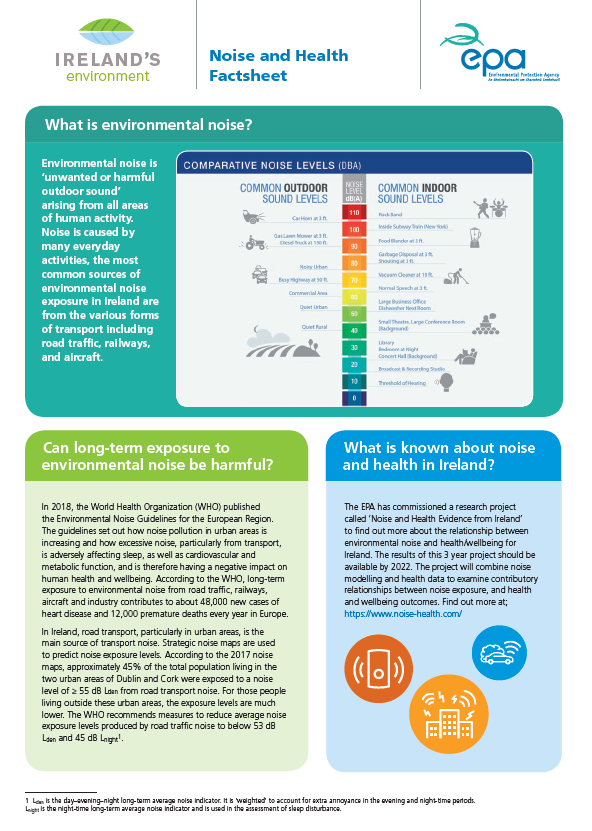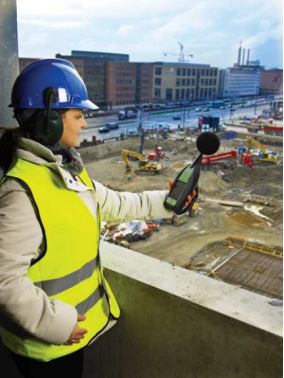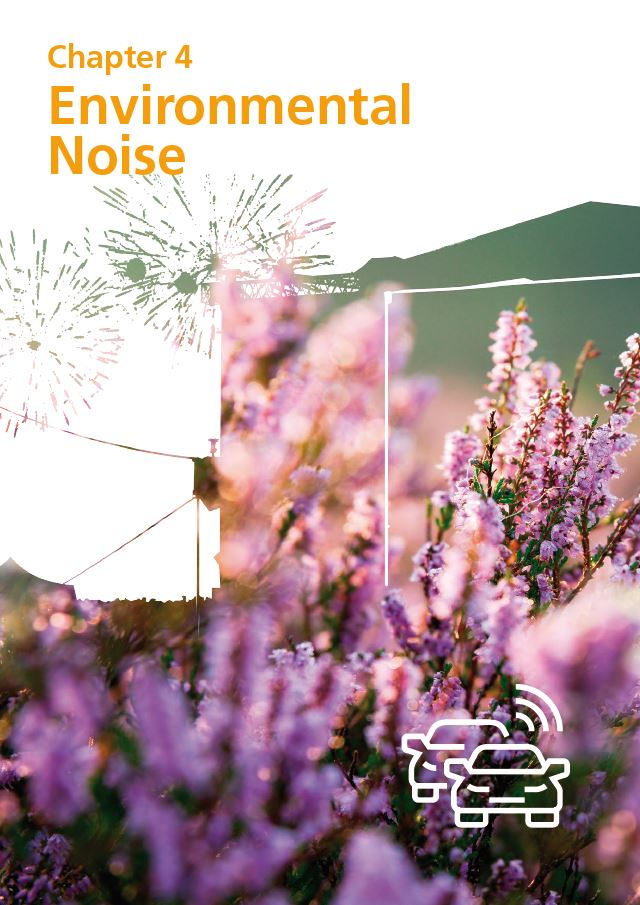Information on the roles of the various competent authorities is provided below.
Dublin Airport Authority (DAA)
The daa has numerous policies and procedures in place in dealing with different elements of noise around the airport. Dublin Airport have their own WebTrak Flight Monitoring System which provides a system for members of the public to monitor flights and submit noise complaints. The Dublin Airport complaints procedure allows for an investigation by their Noise & Flight Track analyst into any given complaint to determine if aircraft have breached the environmental noise corridor. For more information see Dublin Airport Noise.
Air Nav Ireland
Air Nav Ireland oversee all aircraft arriving and departing Dublin Airport. Air Nav Ireland provides air traffic control services in Ireland and controls the route in which the aircraft travel. Air traffic management has a vital part to play, not just in delivering a safe and cost-efficient air navigation service but also in minimising the adverse effects of civil aviation, notably aircraft noise and engine emissions. The Flight Track Monitoring Service of daa regularly meet with Air Nav Ireland to carry out a review of aircraft movements in the vicinity of the airport. Further information is available on the Air Nav Ireland website AirNav - Home.
Airport Noise Competent Authority (ANCA)
ANCA has the responsibility of ensuring that noise generated by aircraft at Dublin airport are assessed in accordance with EU and Irish Legislation. ANCA monitor compliance with noise mitigation measures and operating restrictions at Dublin Airport. Where a noise problem is identified, ANCA will ensure that the International Civil Aviation Organization (ICAO) balanced approach to Aircraft Noise Management is adopted. For more information see Aircraft Noise Competent Authority (ANCA) Fingal County Council.
The ANCA Aircraft Noise Mitigation report for Dublin airport explains the various steps surrounding aircraft noise mitigation along with the different roles the associated competent authorities play in maintaining such procedures. This report (here) also gives relevant Competent Authority contact details.
According to ANCA, any aircraft noise complaints should continue to be made to the Dublin Airport Authority (daa); https://www.dublinairport.com/about-us/-community-affairs/noise-complaint.
Fingal County Council
Fingal Co. Council are responsible for any planning related matters at the airport. This can include enforcement actions if the airport authorities are deemed to breach existing planning conditions.
Fingal County Council is also responsible for developing the Dublin Airport Noise Action Plan (NAP) NAP Final.pdf (fingal.ie), as is required under the Environmental Noise Regulations. The NAP is designed to manage noise issues and effects associated with Dublin Airport, and where necessary, present measures to reduce the adverse effects of aviation noise where practical. A 6-8 week public consultation phase will be undertaken by Fingal County Council on the drat NAP.
An Bord Pleanála
The North Runway was originally granted planning permission in August 2007 by An Bórd Pleanála (to be named an Coimisiún Pleanála) with conditions that include limitations on night-time use of both the new North Runway and Dublin Airport as a whole. In December 2020, the daa submitted a planning application to modify conditions associated with the new North Runway.
The Airport Noise Competent Authority (ANCA) carried out a detailed noise impact assessment of Dublin Airport’s proposals and made a Draft Regulatory Decision in 2021. The Draft Regulatory Decision proposed the introduction of noise mitigation measures to ensure that issues of concern identified in the assessment can be managed in both the short and longer term.
In August 2022, the planning permission was approved by Fingal County Council. The decision allows for new rules around night-time flights to come into effect at Dublin Airport, as put forward by the ANCA. Fingal County Council's decision has been appealed to An Bord Pleanála. It is expected that an appeal decision will be issued by An Bord Pleanála in 2024.
Environmental Protection Agency (EPA)
The EPA is the national authority for overseeing the implementation of the Environmental Noise Regulations 2018, as amended. This includes supervisory and advisory functions in relation to strategic noise mapping and noise action planning (every 5 years) for major roads, major rail, major airports, and for large agglomerations (Dublin, Cork & Limerick). The principal stakeholders in Round 4 mapping are the Noise Mapping Bodies (NMBs) which included the Local authorities and the daa. Noise mapping and action plans | Environmental Protection Agency (epa.ie)
The Round 4 Strategic Noise Maps are published at EPA Maps (Environment & Wellbeing – Noise). The airport maps are also available on the daa website Contour Maps Information and Downloads| Dublin Airport. The Round 4 noise maps are based on 2021 data as required by the legislation, the Round 4 mapping guidance and instructions from the European Environment Agency, so the maps do not include the new airport runway which commenced operations in August 2022.
The Dublin airport noise action plan (NAP) is due to be published in January 2025, and there will be a public consultation phase in 2024. The EPA provides technical noise guidance on how to prepare the maps and action plans.
The EPA does not have an enforcement role in relation to noise emissions arising from the operation of Dublin airport. The EPA provides a noise complaints section on their website. This section outlines the different types of noise complaints and provides links to the relevant competent authorities. See Noise complaints section on the EPA website.




